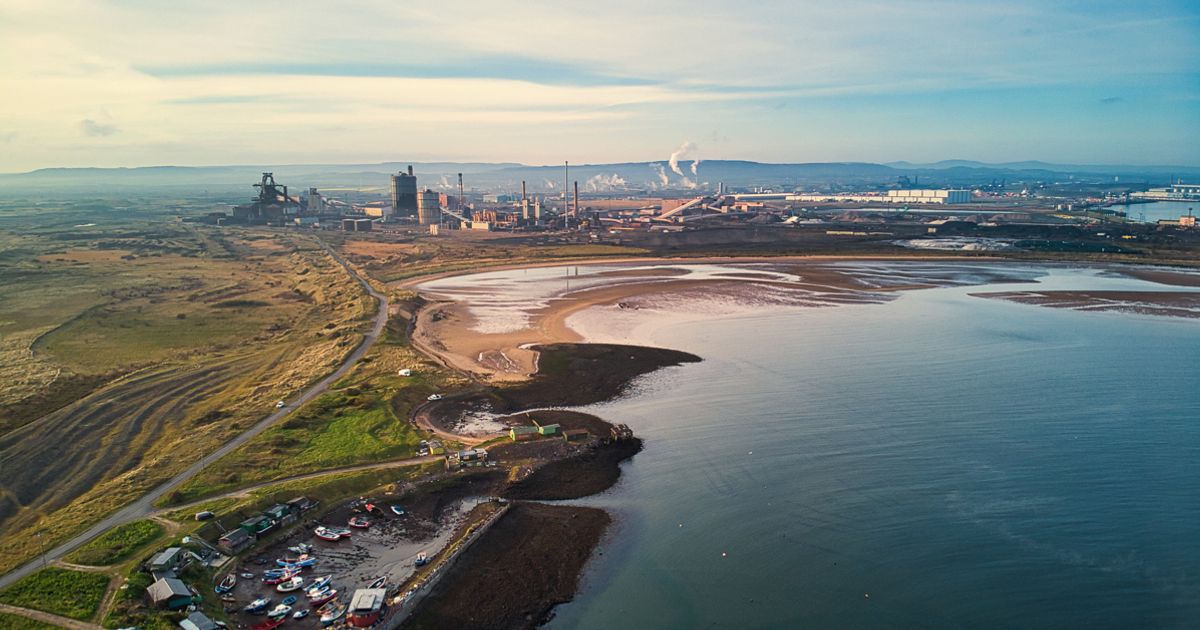Equinor and partners approve execution of UK’s first carbon capture and storage projects

“It is a major milestone to have agreed Final Investment Decision and financial close on two of the UK’s first carbon capture, transport and storage infrastructure projects. This demonstrates how the industry, alongside the UK Government, have progressed a business model for new power supply and carbon capture, transport and storage services to decarbonise the most carbon intensive region in the UK”, says Irene Rummelhoff, executive vice president of Marketing, Midstream and Processing at Equinor.
Irene Rummelhoff, executive vice president of Marketing, Midstream and Processing at Equinor
Photo: Sheyda Aalgaard/Equinor
“We look forward to continued collaboration with our partners and the UK Government as we prepare to progress the projects, with an estimated operational date from 2028 onwards.”NEP, in which Equinor is a key partner, is the CO2transportation and storage provider for the East Coast Cluster (ECC), one of the UK Government’s first selected CCS clusters.
The project expects to commence construction from mid-2025 with start-up in 2028. It includes a CO2 gathering network and onshore compression facilities as well as a 145km offshore pipeline and subsea injection and monitoring facilities for the Endurance saline aquifer located around 1000m below the seabed. It could transport and store up to 4 million tonnes of captured carbon dioxide emissions per year from three Teesside projects initially, rising to an average of up to 23 million tonnes by 2035 with future expansion of the East Coast Cluster.

Alex Grant, UK country manager at Equinor
Photo: Arne Reidar Mortensen/Equinor
“The UK is a key market for Equinor and we have a history of delivering significant energy provision along its East Coast, transitioning from traditional oil and gas demand to include renewables and low carbon options such as CCS and hydrogen. This is a major step for both Equinor and the UK, helping to decarbonise the country’s industrial heartlands and achieve its net zero ambitions whilst providing jobs and supply chain opportunities. We look forward to working with the Government to deliver further low carbon projects across the UK including in the Humber and in Scotland”, says Alex Grant, UK country manager at Equinor.
Equinor is also a partner in NZT Power, which is part of the East Coast Cluster. NZT Power will be a new first-of-a-kind gas-fired power plant with carboncapture, which supports the decarbonisation ambitions across the north-east of England’s industrial regions.
The plant will have the capacity to generate up to 742 megawatts of decarbonised, flexible power, complementing a growing share of intermittent renewable power. This capacity is equivalent to the average electricity demand of around 1 million UK homes. It will have a capacity to capture up to 2 million tonnes of CO2per year for transport and secure storage by the NEP project.
Equinor has a 45 per cent stake in NEP with the remaining 45 per cent owned by bp and 10 per cent by TotalEnergies, and a 25 per cent stake in the NZT Power project with the remaining 75 per cent owned by bp. bp provides operator services on both projects.
Building work for both projects will be completed by nine leading engineering, procurement, and construction contractors with a combined value of around £4billion. The work will bring thousands of jobs and wider socio-economic benefits to the north-east of England.
NEP has also been granted government approval to progress development engineering for the Humber Carbon Capture Pipeline (HCCP), the proposed onshore infrastructure project that would transport CO2 from future selected carbon capture projects in the Humber region.
These decarbonisation projects support Equinor’s wider corporate ambition, including a 50 per cent reduction in operated emissions and 50 per cent gross capex investment in low carbon and renewable technologies by 2030. In the low carbon solutions space, Equinor has an aim to have a 30-50 mtpa CO2 transport and storage capacity by 2035.
Equinor has been a leading energy provider to the UK for more than 40 years, delivering over 25 per cent of its natural gas requirements, enough to heat eight million homes, much of which is landed by pipeline on the East Yorkshire coast. It is also a partner in Dogger Bank in the southern North Sea, which once completed will be the world’s largest offshore windfarm.

Related
Why investing in women is a vital next step for…
Get Nadine White's Race Report newsletter for a fresh perspective on the week's newsGet our free newsletter from The Independent's Race CorrespondentGet our fre
Business secretary signals major shift on electric car policy to…
In a determined effort to retain Nissan’s manufacturing presence in Britain, Business Secretary Jonathan Reynolds has vowed to implement “substantial c
Joint Statement: Business Secretary and Fujitsu Services Ltd
Business and Trade Secretary Jonathan Reynolds today (Friday 7 March) met chiefs for Fujitsu in Tokyo to begin talks over the cost of redress for victims of th
UK foreign secretary backs multilateral defence funding for Europe
UK foreign secretary David Lammy has said that a new multilateral fund will be needed to secure Europe’s defence as he confirmed that Britain is “open to”













